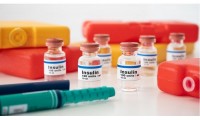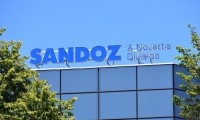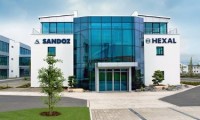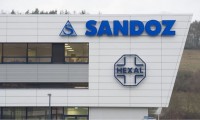-
EirGenix’s Breast Cancer Biosimilar Receives Marketing Authorization by EC
- Source: drugdu
- 114
- November 28, 2023
-
EirGenix and Sandoz win EU approval for Herceptin biosimilar
- Source: drugdu
- 177
- November 26, 2023
-
Sandoz opens new antibiotic and biosimilar facilities in Austria and Germany
- Source: drugdu
- 103
- November 16, 2023
-
Amgen scores FDA approval for Stelara biosimilar
- Source: drugdu
- 99
- November 3, 2023
-
Meitheal partners with Chinese company for US licencing of insulin biosimilars
- Source: drugdu
- 96
- September 30, 2023
-
FDA revises biosimilar guidelines for clearer drug labelling
- Source: drugdu
- 106
- September 20, 2023
-
Sandoz partners with Samsung Bioepis to license Stelara biosimilar
- Source: drugdu
- 103
- September 13, 2023
-
Sandoz’s Tyruko approved by FDA as first biosimilar for relapsing multiple sclerosis
- Source: drugdu
- 230
- August 30, 2023
-
FDA Approves Sandoz Biosimilar to Biogen’s MS Therapy Tysabri
- Source: drugdu
- 110
- August 29, 2023
-
Sandoz says its biosimilar matches Eylea in another threat to Regeneron’s blockbuster
- Source: drugdu
- 146
- August 17, 2023
your submission has already been received.
OK
Subscribe
Please enter a valid Email address!
Submit
The most relevant industry news & insight will be sent to you every two weeks.













